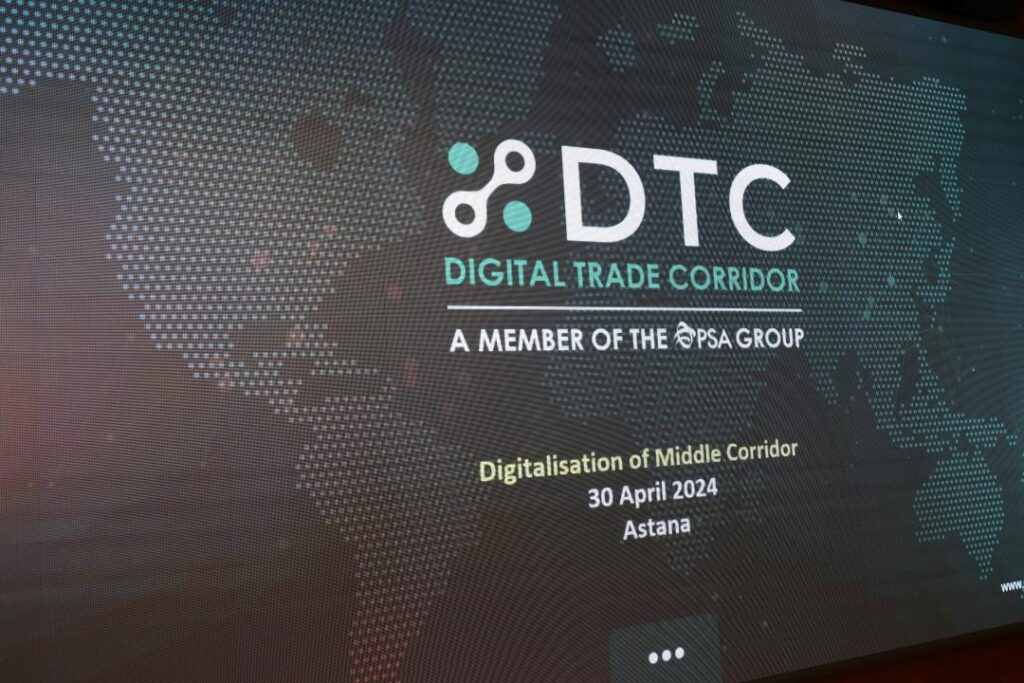BISHKEK (TCA) — “I greatly respect the opinion of the civil sector, but I urge you not to make hasty conclusions,” Kyrgyzstan President Sooronbai Jeenbekov said at the recent telecommunications forum commenting on the situation over the tender for production of new biometric passports.
The head of state stressed that digitalization remains a priority for his presidential activities, so he pays careful attention to all issues in this area.
“Recently, officials related to a tender held by the State Registration Service were detained. This caused a resonance in society. This is a good phenomenon when the civil sector is very strong and citizens are not indifferent to government issues,” he said.
“The law is the same for everyone. If the law is violated, anyone should be brought to justice,” stressed Jeenbekov.
The passport tender has caused a resonance and drew the attention of the international community. Therefore, it is necessary to improve the legislative base and remove corruption elements, if any. The Parliament is now considering a bill on public procurement, and it is necessary to increase the openness of tender procedures and confidence in them, the President concluded.
State Registration Service officials arrested
By decision of a Bishkek court, Director of the Infocom SE at the State Registration Service (SRS) Talant Abdullayev, SRS State Secretary Daniyar Bakchiev and SRS Deputy Chairman Ruslanbek Sarybaev were detained on April 17. They were accused of “lobbying the interests of a foreign company when holding a tender for the manufacture of passports of a new generation”.
According to the State Committee for National Security of Kyrgyzstan (GKNB), “the State Registration Service officials entered into a criminal conspiracy with representatives of the Lithuanian company Garsu Pasaulis and lobbied its interests during a tender for the production of the new Kyrgyz international passports. As a result, the company won the tender, despite the fact that it offered 253 million soms more than their competitors.”
Expert’s opinion
Well-known IT entrepreneur and Chairman of the Kyrgyz Software and Services Developers Association, Azis Abakirov, disagreed with the authorities’ decision and left the Digital Transformation Expert Council under the President of Kyrgyzstan. The next day after the arrest of the SRS officials Abakirov posted a letter to President Jeenbekov on his Facebook page.
“Our young professionals, who created the entire state IT infrastructure, and whose contribution is invaluable for the country, constantly suffer from the personal, corrupt and mercantile interests of certain superior persons illegally controlling the process,” Abakirov said.
According to him, all currently successfully operating IT projects in Kyrgyzstan are the result of the work of Abdullayev and his team.
“The norms of the Law on Public Procurement have been violated, as any action against the procuring entity before signing the contract is a direct pressure on it. We now see how the law enforcement agencies and judicial system are roughly lobbying the interests of one of the bidders. For the first time in history, a criminal case has been filed before the conclusion of a contract resulting from the tender,” he said.
The State Registration Service Chairperson Alina Shaikova said that the tender was held in accordance with the law. On April 19, Prime Minister Mukhammedkaly Abylgaziyev dismissed her from office.
According to IT exerts, these arrests will have a negative impact on the state IT personnel system. Many talented young people honestly admitted that they do not want to work in the public service, the experts said.
Background
In 2018, the State Registration Service announced a tender for the purchase of electronic forms for new e-passports. Five foreign companies took part in the tender, and Lithuanian Garsu Pasaulis was recognized as the winner. But the German Muhlbauer ID Services and French IDEMIA stated that “violations were made during the tender” and demanded to cancel its results.
According to the State Registration Service, the tender applications of those participants were rejected because of the inconsistency of the submitted documents with the tender qualification requirements.
The tender commission chairman and SRS Deputy Chairman Sarybayev acted in accordance with the Law “On Public Procurement” while SRS State Secretary Bakchiev and Infocom Director Abdullayev were not tender commission members, the SRS said.
Lithuanian company refutes accusations
Garsu Pasaulis has refuted the accusations of the State Committee for National Security of Kyrgyzstan as “absurd insinuations”.
“Stable ties were established between former and current heads of the State Registration Service with representatives of the tender winner, due to which SRS officials were repeatedly provided with foreign trips,” the GKNB press release said.
Garsu Pasaulis denied the allegations of its affiliation with Kyrgyz SRS management.
“Those meetings [with senior SRS staff] were a usual part of our job duties. We were shocked to read the GKNB statements in the media that we had some kind of ‘affiliation’ with them. This is a very serious accusation for us, but it is absolutely groundless. A simple acquaintance is not an affiliation and cannot serve as a cause for initiating a criminal case,” adviser to the Lithuanian company’s general director told Sputnik Kyrgyzstan.
The company intends to protect its business reputation in the judicial bodies including international arbitration.
Slogans and reality
There is a feeling that talking about digitalization has become fashionable. The authorities say that in the last three years, great attention has been paid to digitalization, “but in reality we do not see tangible results,” Chorobek Saadanbek, head of the Our Heritage Foundation, told Maral Radio.
“We are talking a lot about digitalization, while neighboring Kazakhstan has achieved good results without any slogans,” he added.
The expert advised to carry out this work together with the business community. He told about digitalization experience in Germany, where the government created the necessary conditions for the business and provided funding.
There is a practice in Kyrgyzstan that only the Government can solve major issues, Saadanbek said. Meanwhile, it is necessary to involve civil society and the business sector in the implementation of major projects. The digital transformation is promoted by young people from the bottom up, but at the top it is run by big retirement-age politicians, he concluded.









